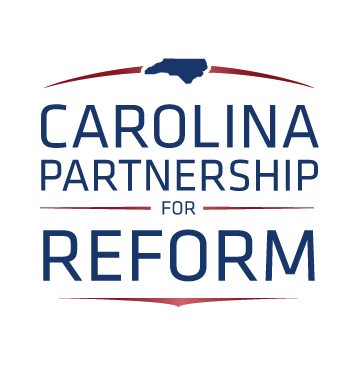The Roy Cooper for VP Campaign is Fully Underway
Gov. Roy Cooper’s campaign to be President Joe Biden’s running mate looks to be in full swing.
That seems the best explanation for last week’s political rally to veto a restrained abortion measure and today’s PR gambit to declare a “state of emergency” for public education…after his last “state of emergency” closed public schools. It’s an unfortunate turn for debate over policies that will benefit North Carolinians.
First we’ll cover the political state of play before discussing the absurdity (and irresponsibility) of a new “state of emergency.”
What Fortuitous Timing
Every maneuver Cooper employs has a political component. There’s nothing inherently wrong with that – it’s politics, and Cooper is a sophisticated political operator.
But it’s wise to consider the political endgame when searching for the “why” of a policy choice. (For example, why did Cooper bury hurricane recovery responsibility deep within the bureaucracy of a state agency? Successful hurricane recovery czars are empowered with the authority of a chief executive – but a direct report to, say, the Governor himself or his top aide would make the Governor more responsible for failure, and that’s a political no-no.)
So why did Cooper hold a veto rally? Why is Cooper presenting public education as an “emergency”? And why is he pairing these actions with aggressive national media pitches?
To us, the answer looks obvious: They’re the next phase of Cooper’s public campaign for the vice presidency, positioning him as a fighter for abortion and against school choice who also happens to be 10-15 points more popular than Biden in a crucial swing state. Oh, and an understudy capable of public events that don’t turn into Veep spoofs.
Consider this context:
Cooper chairs the Democratic Governors Association, granting him entrée to national donors and national media, even though he’s not seeking reelection. That would be an odd choice for someone expecting to retire soon.
When Biden’s approval numbers inverted in Summer 2021 and kept falling for the next year, some state and national media began mentioning Cooper as a potential 2024 presidential candidate. In December 2021, the New York Times described Cooper as “sketching out what could be the makings of a Cooper for President message to primary voters.”
But then Biden’s numbers started rebounding, and Democrats beat expectations in the 2022 midterms. Not one week after the election, Cooper told CBS News, “I had a conversation with [Biden] just a couple of days ago. I support him. He’s been a fantastic president.” He’s continued that mantra ever since, often gushing about Biden’s job performance and “energy.”
And here we are, a month after Biden announced his reelection campaign and a few months before national speculation picks up about who Biden will tap as his running mate. What fortuitous timing for Cooper to insert himself into national media on hot partisan issues with stunts like a veto rally and a public education “state of emergency.”
A Reckless PR Gambit
Now onto the merits of the so-called “state of emergency.” By many measures, North Carolina’s public education funding is in better shape today than when Cooper took office. The National Education Association, for example, ranks North Carolina better in average teacher pay and per-pupil expenditures now than in 2016.
What Cooper really objects to is the legislature’s expansion of the Opportunity Scholarship program and guardrails on politically-charged curricula. Both policy choices are broadly popular and, like arguments over how high to increase the education budget, neither debate is particularly new.
If Cooper believes an “emergency” exists now, it’s hard to understand why it hasn’t existed since he took office, aside from the political context explained above.
At bottom, Cooper’s “state of emergency” gambit puts a lot of fluff on a fairly standard and boring end pitch: Call your representative and complain. And calling traditional policy debates a “state of emergency” injects hysteria and fear after an actual emergency in 2020 (which Cooper extended for another two years).
Consider also Cooper’s maneuvering on education policy matters in recent years. He:
Vetoed the highest teacher pay raise in the entire country in 2017;
Vetoed a no-strings-attached teacher pay raise in 2019;
Vetoed science of reading implementation in 2019, delaying for two years a research-based change in child literacy education.
And who can forget when Cooper issued an emergency declaration to close public schools, refusing to reopen them until the political winds shifted.
Bottom Line: Cooper’s “state of emergency” gambit looks like a PR strategy to boost his prospects for the vice presidency. His political ambitions are costing us by turbocharging traditional debates over policies that will benefit North Carolinians.

